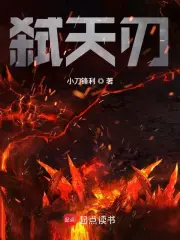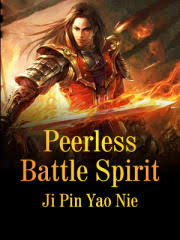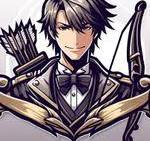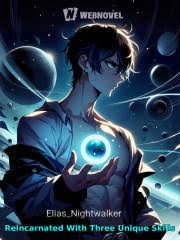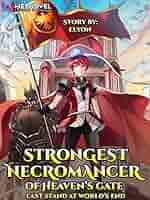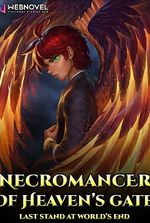The Story in 3 Sentences
Chu Mo begins his journey as a fugitive after a minor offense against royalty forces him to flee his home, seeking power through cultivation in a ruthless world where moral boundaries are constantly blurred.
His path dramatically shifts when he encounters the unorthodox and morally complex Demon Lord, who becomes his master and imparts the devastating Eight Hell Blades technique, pulling Chu Mo into the turbulent currents of mortal politics, military strategy, and economic manipulation rather than isolated cultivation.
The narrative evolves from a personal quest for strength into a grand multi-realm struggle that challenges fundamental concepts of good and evil as Chu Mo carves his own supreme path with a blade technique powerful enough to murder heaven itself .
Why It Stands Out
1. The Strategist Cultivator Hybrid
This novel brilliantly subverts standard xianxia tropes by weaving intricate political and economic strategizing into its core cultivation progression system. Unlike protagonists solely obsessed with isolated training and breakthrough realms, Chu Mo excels as a master manipulator of mortal institutions, using his sharp intellect to navigate complex court intrigues, battlefield tactics, and economic warfare. This unique blend provides a refreshingly holistic and intellectual view of power dynamics within a cultivation world, making his rise to power feel earned through cunning and strategy as much as through martial prowess, offering a sophisticated alternative to typical cultivation narratives .
2. A Master-Disciple Dynamic with an Edge
The relationship between Chu Mo and his master, the Demon Lord, defies every convention of the genre by replacing the typical venerable elder with an unpredictable, morally ambiguous figure who believes in teaching through harsh real-world experience. This creates a compelling and often abrasive dynamic that feels authentic and grounded in harsh practicality rather than idealized, protected learning, significantly shaping Chu Mo’s destructive path and worldview through brutal lessons rather than gentle guidance .
3. The Mortal Crucible of Supreme Power
While vast cosmic cultivation realms exist, a significant and defining portion of the story remains powerfully grounded in the conflicts of the mortal world, where Chu Mo’s strength is honed through leading armies, managing economies, and outsmarting political rivals. This philosophical emphasis on mortal struggle as a valid and potent path to supremacy offers a profound twist on the genre’s usual obsession with transcending humanity, providing a unique and engaging narrative focus that explores power through governance and strategy rather than mere cultivation advancement .
Characters That Leave a Mark
There’s the Demon Lord – A formidable and enigmatic figure who serves as Chu Mo’s primary mentor, imparting the devastating Eight Hell Blades technique while embodying a complex morality that challenges conventional notions of good and evil. His teaching methods are abrupt and practical, often involving swift expulsion from the mountain to force real-world learning, and his philosophy of power significantly shapes Chu Mo’s destructive path and understanding of true strength in a brutal world .
You’ll meet Wang Dafa, who represents one of the more intriguing mortal connections Chu Mo develops, demonstrating exceptional business acumen and strategic thinking that complements the protagonist’s journey. His decision to align with Chu Mo is notably influenced by the Demon Lord’s formidable reputation, showcasing the intricate web of influence and power dynamics that extend beyond mere cultivation prowess into the realms of commerce and mortal influence .
And the Giant Rooster? They’re the one who provides cryptic wisdom, comic relief, and crucial exposition about the ancient history of the Heaven Realm and the sacred artifacts Chu Mo possesses. This unusual character acts as an unexpected guide with its own mysterious agenda and connection to higher realms, offering both humorous interactions and profound insights that occasionally steer Chu Mo’s decisions and understanding of the broader cosmic landscape .
The Flaws Fans Debate
The novel is frequently criticized for significant inconsistencies in character personalities, world geography, and the internal logic of the setting, which can shift dramatically from chapter to chapter to suit the author’s immediate narrative needs, often breaking immersion and creating plot holes that frustrate readers seeking coherent world-building .
Many readers point to Chu Mo’s exceptionally thick plot armor as a major drawback, noting that his victories and survival often feel unearned, relying heavily on incredibly convenient interventions, luck, or the sudden appearance of powerful artifacts rather than his own meticulous skill or preparation, which diminishes the sense of genuine struggle and achievement .
The development of the harem, particularly the relationship with Qi Xiaoyu, is often cited as weak and unnatural, beginning with an instantaneous and unexplained devotion that feels contrived and lacks any semblance of gradual, believable development, making romantic elements appear forced and underdeveloped compared to other aspects of the story .
Must-Experience Arcs
Ch. 1–35: The Unorthodox Initiation – This foundational arc covers Chu Mo’s flight from home, his desperate search for a cultivation path, and his abrupt, unconventional adoption by the Demon Lord, whose harsh teaching methods and swift expulsion set the novel’s tone of satire and subversion from the very beginning, establishing the unique master-disciple dynamic that defines much of the early narrative .
Ch. 80–150: The Mortal Strategist – A defining arc where Chu Mo delves deeply into the politics and military conflicts of the mortal world, showcasing his genius not in cultivation alone but in economic manipulation and grand battlefield tactics, solidifying the novel’s unique identity away from traditional cultivation isolation and emphasizing the importance of intellectual warfare over physical combat .
Ch. 180–200: The Chaos Furnace Revelation – This arc delves into the deeper lore and immense power of the ancient treasures Chu Mo possesses, including the revelation of the Chaos Furnace’s true nature and its history, expanding the scope from mortal conflicts to the cosmic battles of the Heaven Realm and setting the stage for future multi-realm struggles that elevate the stakes beyond earthly concerns .
Killer Quotes
“In a tyrannical world, what is evil? What is benevolence? All living creatures are brutal.”
“The whole journey thistles and thorns, one blade chops open a path, I alone will be supreme!”
“When Godslayer is released……the whole world grieves!”
Cultural Impact
The novel cultivated a dedicated niche fanbase that deeply appreciated its deliberate deviation from standard xianxia formulas, particularly its strong focus on political intrigue and military strategy alongside the cultivation action, creating a distinct identity within the genre that sparked extensive discussions about innovative storytelling approaches .
It generated ongoing debates within reader communities regarding the effective balance between political storytelling and traditional cultivation action, with many fans praising the innovative blend while others found the shift in focus to be jarring and inconsistent, leading to divided opinions about whether the novel successfully merges these elements or struggles with identity crisis .
Despite its noted flaws, the novel is consistently recommended as a refreshing and worthwhile take for seasoned readers tired of conventional xianxia tropes, frequently appearing in forum discussions seeking stories where the protagonist relies on intelligence and cunning over brute force or sheer luck, maintaining a presence in recommendation threads for unconventional cultivation narratives .
Final Verdict
Start Here If You Want:
A xianxia narrative that boldly breaks the mold by seamlessly integrating clever political maneuvering and large-scale military strategy into its core, offering a more intellectual and strategic power fantasy than typical cultivation stories that prioritizes brain over brawn in meaningful ways.
A protagonist who is genuinely calculating and smart, relying on his wits, strategic mind, and economic acumen to overcome obstacles just as much as his cultivation progress and the raw power of the Eight Hell Blades technique, providing a refreshing change from typically combat-focused heroes.
A cultivation system and world-building filled with unique and imaginative elements, such as the metaphysically potent Eight Hell Blades and the ancient treasures like the Chaos Furnace, which provide a fresh and engaging take on martial techniques and their deep philosophical implications beyond standard progression systems.
Study If You Love:
Narratives that explore the nuanced and often dangerously blurred lines between good and evil, forcing characters to make difficult moral choices in a brutal world and consistently challenging simplistic moral binaries and straightforward heroism through complex character motivations and actions.
Stories with extensive and intricate world-building that encompasses not just the celestial realms of cultivation but also the complex, gritty social, economic, and political structures of the mortal world, treating both with equal importance and detail that enriches the overall narrative tapestry.
Character dynamics that actively subvert common tropes, particularly the relationship between a master and disciple, which is portrayed as more transactional, unpredictable, and grounded in harsh practicality and survival than in idealized mentorship and gradual, careful teaching, reflecting more realistic power dynamics.
Avoid If You Prefer:
A tightly consistent and logical narrative without significant logical inconsistencies or abrupt, unexplained shifts in world-building, geography, and character motivation, as this novel is frequently and openly criticized for its numerous plot holes and contradictions that can disrupt immersion.
A slow-burn, well-developed romance built on gradually developed relationships and mutual understanding, as the romantic elements here, particularly the harem and the relationship with Qi Xiaoyu, are widely cited as underdeveloped, instantaneous, and feeling forced without proper emotional foundation.
A traditional xianxia focus on uninterrupted, linear cultivation progression and secluded training arcs, as this story frequently diverts into prolonged sections focused on political and military engagement within the mortal realm, often for dozens of chapters at a time, which may disappoint those seeking constant cultivation advancement.
